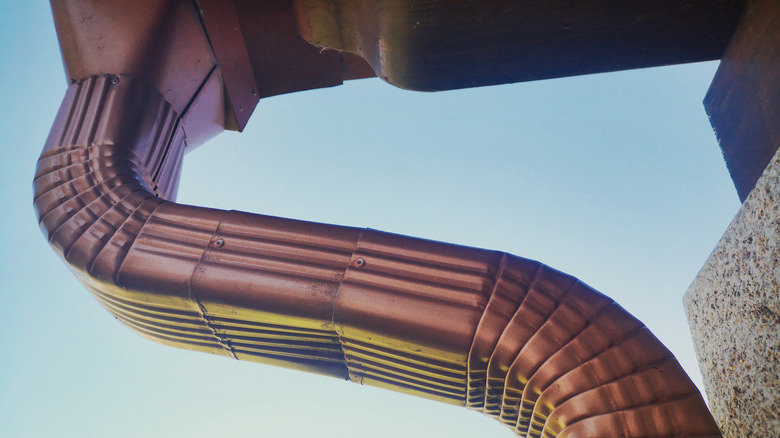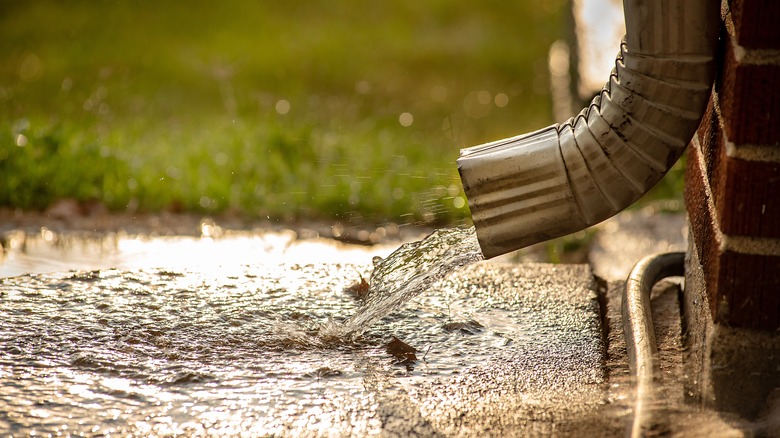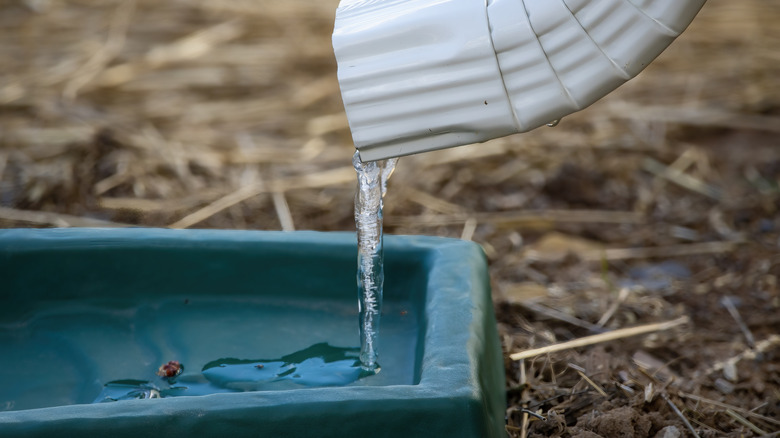The Trick To Lowering Humidity In Your Home Is In Your Gutter. Here's Why
The best humidity level for your home is between 30% and 50% — but keeping it at that level requires a little work if you live in a humid environment. You may have to improve your home's ventilation, turn the AC up, or run a dehumidifier. There are also other small, yet effective tweaks you can make. By moving your gutter downspouts farther away from your home, you can lower the humidity to more comfortable and safe levels.
"Excessive humidity can cause several problems," Noel Gillis, founder and owner of Home Mechanics, exclusively told House Digest. "For starters, it creates a perfect environment for mold and mildew to thrive, which can cause health issues like allergies and respiratory problems." Gillis added that high humidity can lead to structural issues and allow dust mites to thrive.
While weather, leaks, and certain daily activities like showering can make your house more humid, gutters are also a factor. "Many people might not realize the importance of a well-designed gutter system until they experience problems," Gillis said. Here's what you should know.
Why gutters can raise humidity
According to Gillis, gutters can increase the humidity levels in your home when the downspouts face toward the building, rather than away from it. Downspouts that aren't far enough away from the foundation can also pose a problem. "When downspouts discharge water near the foundation, it can lead to water pooling around the base," Gillis told House Digest exclusively. "Over time, this pooled water can seep into the foundation, basement, or crawl spaces." Once that water evaporates, it raises the humidity in the house.
While gutters aren't usually the first thing that comes to mind when you think of humidity levels, Gillis said this is actually a "common concern for homeowners." Beyond the pooled water itself, over time, the water can crack the foundation and lead to more indoor water leaks, which further increases humidity and leads to potential water damage. By taking a look at your gutter design and making some easy changes, you can get ahead of this issue.
Prevent your gutters from causing humidity
"To avoid humidity issues caused by gutters, homeowners should ensure that downspouts discharge water at least six feet away from the foundation," Gillis exclusively told House Digest. "This can be done by installing downspout extenders or splash blocks." You can do this installation yourself with supplies from your local Home Depot or Lowe's. "Ensuring the ground around your home slopes away from the foundation can also help direct water away naturally," Gillis added.
Keeping your gutters clean and free of debris is important too, Gillis said, as clogs can lead to overflow. Also, inspect your basement and crawl spaces for water leaks regularly. When it comes to water damage, the sooner you spot the problem the better.
There are other ways to lower the humidity in your house fast in the meantime, such as running a dehumidifier or air conditioner. Simply running a fan and opening the window can help move some moist air out of the home. Gillis also advised switching to a heat pump, which can help dry out the air in both summer and winter.


